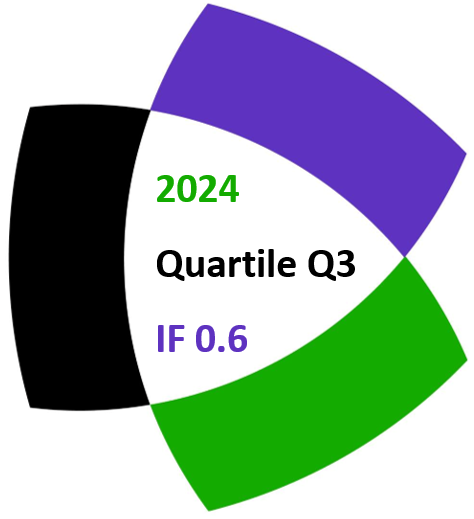J. V. Leyendekkers and A. G. Shannon
Notes on Number Theory and Discrete Mathematics, ISSN 1310–5132
Volume 5, 1999, Number 4, Pages 151–162
Full paper (PDF, 391 Kb)
Details
Authors and affiliations
J. V. Leyendekkers
The University of Sydney, 2006, Australia
A. G. Shannon
University of Technology, Sydney, 2007, Australia
Abstract
The polynomial expansion of the Diophantine equation ![]()
![]()
![]() , yields roots of the form
, yields roots of the form ![]() where
where ![]() is a non-integer zero of a Cardano cubic polynomial of the form
is a non-integer zero of a Cardano cubic polynomial of the form ![]() . This is a corollary to Fermat’s Last Theorem. The characteristics of this family are illustrated for
. This is a corollary to Fermat’s Last Theorem. The characteristics of this family are illustrated for ![]() . For
. For ![]() odd,
odd, ![]() can be represented by
can be represented by ![]() , and for
, and for ![]() even there are two real values of
even there are two real values of ![]() ,
, ![]() and
and ![]() , where
, where ![]() are real non-integer parameters. For a given
are real non-integer parameters. For a given ![]() ,
, ![]() is simply related to
is simply related to ![]()
![]() , and to a parameter
, and to a parameter ![]() which is linear in
which is linear in ![]() . The corresponding curves indicate the non-integral nature of
. The corresponding curves indicate the non-integral nature of ![]() .
.
AMS Classification
- 11C08
- 11D41
References
- Boyer, Carl B. 1985. A History of Mathematics. Princeton: Princeton University Press.
- Dunham, William. 1990. Journey through Genius: The Great Theorems of Mathematics. New York: John Wiley.
- Galbraith, Steven. 1999. Elliptic Curve Public Key Cryptography. Mathematics Today’. 35(3): 76-79.
- Gould, Henry’ W. 1999. The Girard – Waring Power Sum Formulas for Symmetric Functions and Fibonacci Sequences. The Fibonacci Quarterly. 37(2): 135-140.
- Herz-Fischler, Roger. 1998. A Mathematical History of the Golden Section. New York: Dover.
- Hillman, Abraham P. & Alexanderson, Gerald L. 1978. A First Undergraduate Course in Abstract Algebra. Second Edition. Belmont, CA: Wadsworth.
- Householder, A.S. 1970. The Numerical Treatment of a Single Non-linear Equation. New York: McGraw-Hill.
- McLeish, John. 1991. The Story of Numbers. New York: Fawcett Columbine.
- Macmahon, Percy A. 1915. Combinatory Analysis. Volume I. Cambridge: Cambridge University Press.
- de Pillis, L.G. 1998. Newton’s Cubic Roots. The Australian Mathematical Society Gazette. 25(5): 236-241.
- Turnbull, H.W. 1952. Theory of Equations. Fifth Edition. Edinburgh: Oliver and Boyd.
- van der Poorten, A. 1996. Notes on Fermat’s Last Theorem. New York: Wiley.
Related papers
Cite this paper
Leyendekkers, J. V. & Shannon, A. G. (1999). The Cardano family of equations. Notes on Number Theory and Discrete Mathematics, 5(4), 151-162.


